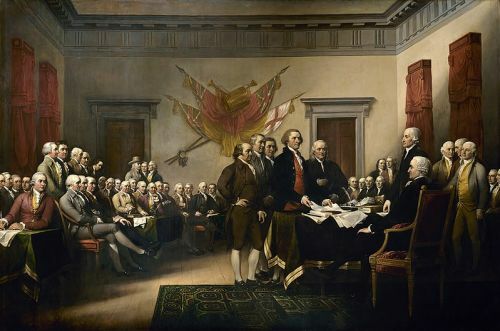During the course of the battles in the last years of the World War I, some peace treaties were being signed to enable the exit of some countries from the conflict.
The first to be signed was the Brest-Litovsk Treaty, on March 3, 1918, named after the city in which it was signed. The new Bolshevik government, which had founded the Russian Soviet Republic, reached an agreement with Germany, ending the conflict between the two countries. In the treaty, the Russians lost regions that supply coal and oil, as well as several other territories in the western region, such as Ukraine and Finland.
The war would last a few more months, ending on November 11, 1918, with the decree of an armistice and a ceasefire. Germany found itself with no way out in the face of the defeats its army was suffering. Kaiser William II renounced the throne, being replaced by a civil government, whose majority of members came from the Social Democratic Party. From then on, negotiations for the establishment of peace between the belligerent countries began.
The first attempt to reach an agreement was at the initiative of the US government, through President Woodrow Wilson's proposed peace plan. In this plane, called the Wilson's 14 points, the Germans should withdraw from the occupied territories and would still create the League of Nations, designed to prevent the emergence of new wars. This treaty, accepted by the Germans, foresaw the emergence of “peace without winners”.
But this was not the objective of the other Entente countries, especially England and France. Gathered at Versailles, on the outskirts of Paris, between January and June 1919, the representatives of the victorious countries negotiated postwar conditions. England and France did not accept the terms proposed by the US president for peace, demanding that Germany compensate the other countries for the damage caused.
O Treaty of Versailles it found Germany guilty of the war and imposed harsh conditions for the maintenance of peace. The Germans were supposed to pay a compensation of 30 billion dollars; renounce maritime colonies; to give France the region of Alsace-Lorraine, a region with a large amount of energy resources; recognize Poland's independence; they could not restructure their Armed Forces, limiting their army to 100,000 men, even losing their artillery and aviation, and not being able to build warships.
In addition, the Treaty of Versailles also provided for the formation of the League of Nations, whose function was to be an arbiter of international conflicts with the aim of avoiding new wars. The project was not successful, as it did not have important countries on the world stage, such as Russia, USA and Germany itself.
In September 1917, the Treaty of Saint-Germain with Austria, which decided to dismember the Austro-Hungarian Empire. This gave rise to new countries, such as Austria, Hungary, Poland, Czechoslovakia and the Kingdom of Serbs, Croats and Slovenes (which would later become Yugoslavia). Austria still lost its access to the sea in this treaty.
With Turkey, the Treaty of Sevres, which put an end to the centuries-old Turkish-Ottoman Empire.
World War I, which left close to 13 million dead and 20 million wounded, led Germany, through the Treaty of Versailles, to plunge into a deep economic and social crisis. The result of this crisis was the rise of Nazism in the 1930s and the subsequent outbreak of World War II.
By Tales Pinto
Graduated in History

